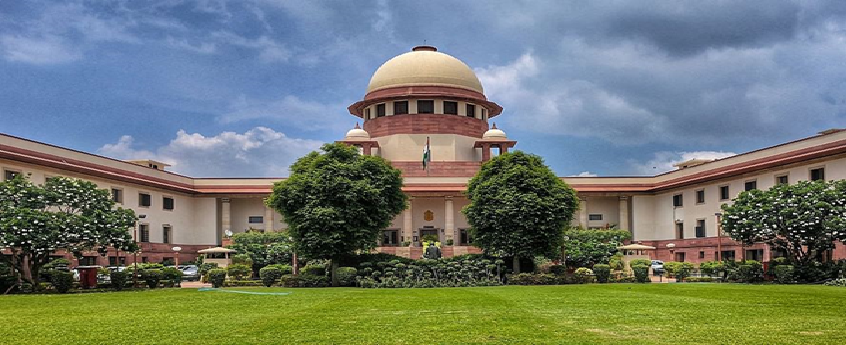Supreme Court examines allegations of rampant misuse of PMLA
15, Feb 2022

Prelims level : Economy
Mains level : GS-III Economy: Money-Laundering & Its Prevention
Why in News?
- The Supreme Court is looking into allegations of the metamorphosis of the Prevention of Money Laundering Act (PMLA), brought to sniff out drug money, into a potent weapon to raid rivals and Deny Rights.
Prevention of Money Laundering Act (PMLA):
- PMLA, 2002 is an Act of the Parliament of India enacted by the NDA government to prevent money-laundering and to provide for confiscation of property derived from money-laundering.
- It was enacted in response to India’s global commitment (including the Vienna Convention) to combat the menace of money laundering.
- PMLA and the Rules notified there under came into force with effect from July 1, 2005.
- The act was amended in the year 2005, 2009 and 2012.
Objectives of PMLA:
- The PMLA seeks to combat money laundering in India and has three main objectives:
- To prevent and control money laundering.
- To confiscate and seize the property obtained from the laundered money; and
- To deal with any other issue connected with money laundering in India.
Key Definitions:
- Payment System: A system that enables payment to be effected between a payer and a beneficiary, involving clearing, payment or settlement service or all of them. It includes the systems enabling credit card, debit card, smart card, money transfer or similar operations.
- Money-laundering: Whosoever directly or indirectly attempts to indulge or assist other person or actually involved in any activity connected with the proceeds of crime and projecting it as untainted property.
- Attachment: Prohibition of transfer, conversion, disposition or movement of property by an appropriate legal order.
- Proceeds of crime: Any property derived or obtained, directly or indirectly, by any person as a result of criminal activity relating to a scheduled offence.
Salient Features:
- Punishment and Jail term: The Act prescribes that any person found guilty of money-laundering shall be punishable with rigorous imprisonment from three years to seven years. The maximum punishment may extend to 10 years instead of 7 years.
- Powers of attachment of tainted property: The Director or officer above the rank of Deputy Director with the authority of the Director, can provisionally attach property believed to be “proceeds of crime”.
- Adjudicating Authority: It is the authority appointed by the central government which decides whether any of the property attached or seized is involved in money laundering.
- Presumption in inter-connected transactions: Where money laundering involves two or more inter-connected transactions. It is presumed that the remaining transactions form part of such inter-connected transactions.
- Burden of proof: A person, who is accused of having committed the offence of money laundering, has to prove that alleged proceeds of crime are in fact lawful property.
- Appellate Tribunal: It is given the power to hear appeals against the orders of the Adjudicating Authority and any other authority under the Act. Its orders are not final and can be challenged.
- Establishment of Special Court: To ensure speedy trial.
Issues with PMLA:
- Misuse of Central Agencies: PMLA is being pulled into the investigation of even ordinary crimes by the Enforcement Directorate.
- Seizing of Assets: Assets of genuine victims have been attached. The ED could just walk into anybody’s house.
- Politically Motivated Raids: In all this, the fundamental purpose of PMLA to investigate the conversion of “illegitimate money into legitimate money” was lost.
- Opacity of charges: Petitioners pointed out that even the Enforcement Case Information Report (ECIR) – an equivalent of the FIR – is considered an “internal document” and not given to the accused.
- Vagueness over Evidences: The accused is called upon to make statements which are treated as admissible in evidence.
- Harassment: The ED begins to summon accused persons and seeks details of all their Financial Transactions and of their family members.
- Against individual liberty: The initiation of an investigation by the ED has consequences which have the potential of curtailing the liberty of an individual.
Way Ahead:
- It is unlikely that corruption can be substantially reduced without modifying the way Government Agencies operate.
- The fight against Corruption is intimately linked with the reform of the Investigations.
- Therefore the adjudicating authorities must work in cooperation and ensure the Highest standards of Transparency and Fairness.






